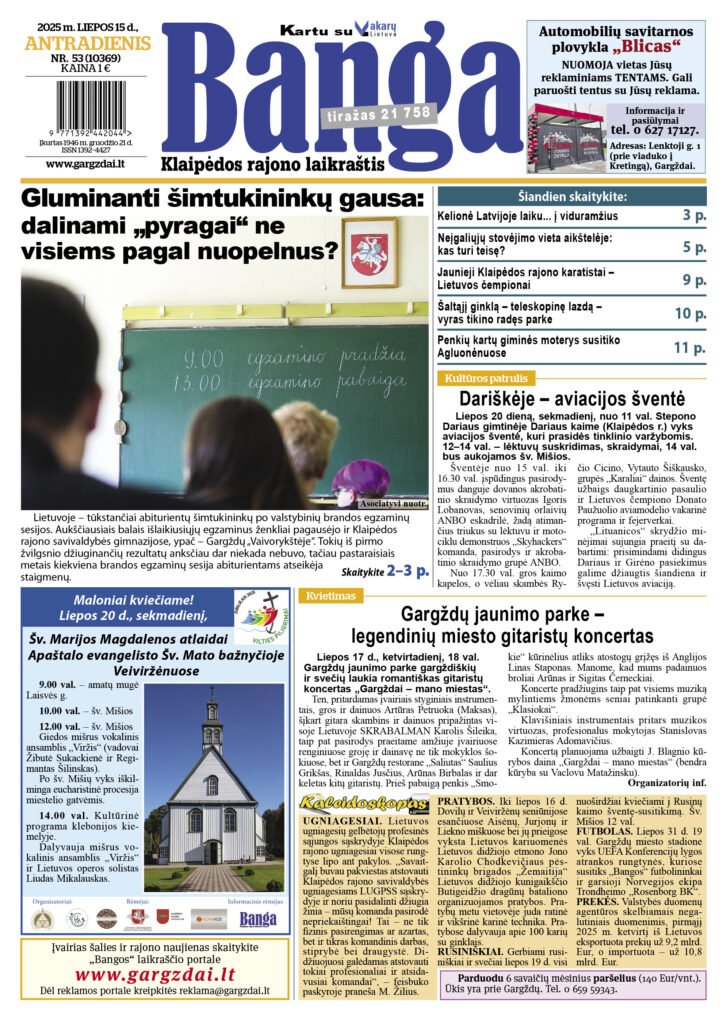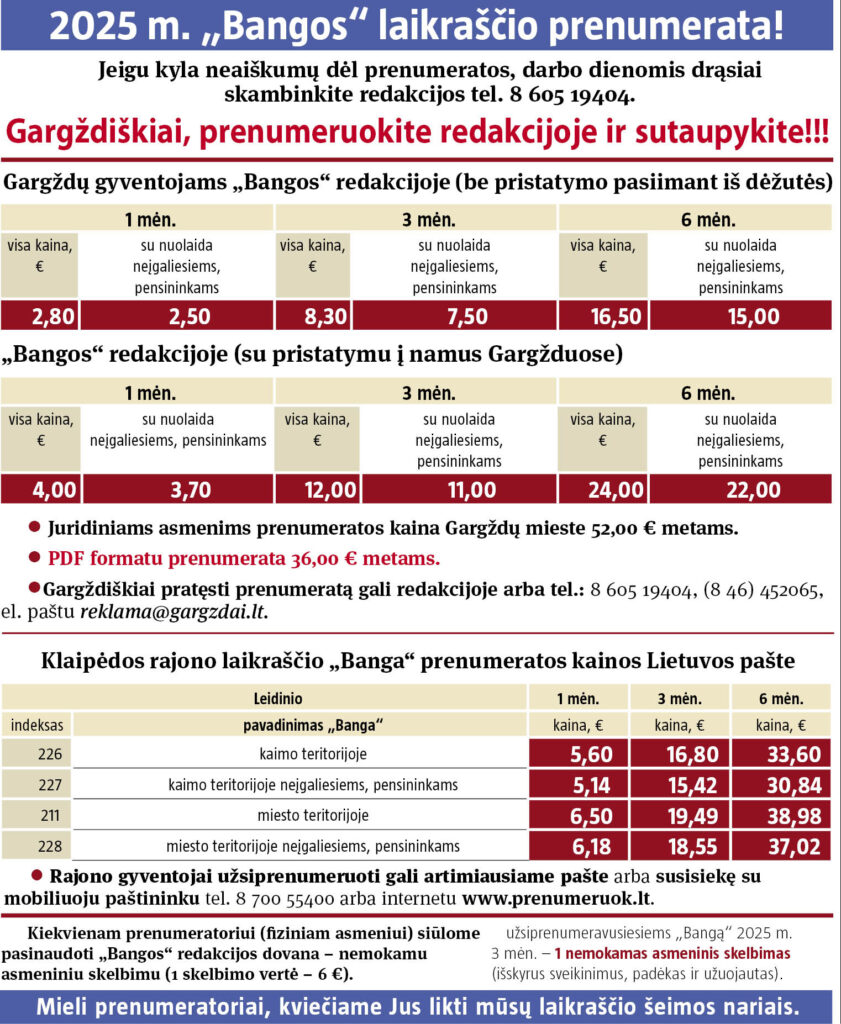Britų monarchija: kilnioji ir efektyvioji
Britų monarchija visą laiką kelia didelį susidomėjimą ir daug debatų. Šiuo metu dėl karališkųjų vedybų interesas dar padidėjo. Daugelis mano pažįstamų Lietuvoje klausia mano nuomonės. Žurnale „The Economis“ neseniai buvo išspausdintas straipsnis apie monarchiją, kuris man patiko. Manau, kad laikraščio skaitytojams tai bus irgi įdomu.
Karališkosios vestuvės yra pats geriausias laikas pasitikrinti, kaip veikia britų konstitucija. Walteris Bagehot‘as, „The Economist“ redaktorius, 1860–1877 m. laikėsi nuomonės, kad konstitucija susideda iš dviejų dalių. Monarchija atstovauja „kilniajai“ daliai. Ji simbolizuoja valstybę per ceremonijas ir pompastiškumą. Vyriausybė-parlamentas, ministrų kabinetas ir valdininkija atstovauja „efektyviajai“ daliai. Kilnioji šaka valdo poetiškai, efektyvioji pusė – pasitelkdama prozą. Šiandien kilnioji pusė prisitaiko prie populizmo amžiaus žymiai geriau negu efektyvioji.
Prieš dvidešimt metų atrodė, kad monarchija jau pasiekusi paskutiniąją irimo stadiją. Princo Čarlzo ir Dianos Spencer liūdnai pasibaigusi istorija parodė, kad monarchijos siekis valdyti kilniai ir oriai nepasiteisino. Poros nesutarimai padalijo anglus į dvi dalis: dauguma palaikė Dianą ir žymiai mažesnė grupė – Čarlzą. Populiarioji spauda turėjo neišsemiamą paskalų šaltinį, kuris dažnai buvo tiesiog pykinantis. Viską apvainikavo karalienė, nepareikšdama deramos užuojautos, kai žuvo Diana. Penkias dienas ji nepasakė nieko, šia tyla sudegindama dešimtmečius trukusį geranorišką visuomenės požiūrį.
Čarlzo ir Dianos nesutarimai nebuvo vieninteliai. Princas Andrew ir jo buvusi žmona Sara Ferguson niekada nebuvo populiarūs. Tonis Bleiras pavadino Angliją „Cool Britania“ (kieta Britanija), kurioje Princas Phillipas atrodė visiškai ne savo vietoje. Kai Princas Čarlzas tvirtai apsisprendė vesti Kamilą Parker Bowles, su kuria jis turėjo romaną būdamas santuokoje su Diana, tai galutinai atstūmė publiką.
Tuo tarpu efektyvioji pusė vis stiprėjo. Tonis Bleiras ir Gordonas Braunas modernizavo šalį, suteikdamas laisvę Anglijos bankui, suteikė daugiau teisių Škotijai, Velsui ir Šiaurės Airijai, gerokai apvalė valstybės departamentus. Efektyvioji šaka netgi turėjo įsikišti ir pagelbėti kilniajai pusei. Ponas Bleras pavadino Dianą „žmonių princese“ , kai tuo tarpu karalienė sėdėjo savo pilyje Škotijoje ir įtikino rūmus sudaryti komitetą, skirtą ištirti monarchijos ateitį.
Šiandien situacija visai pasikeitusi. Efektyvioji pusė nuo 1970 metų išgyvena savo patį blogiausią laikotarpį. Dvi pagrindinės partijos tapo įkalintos savo pačių kraštutinybėse. Premjerė ministrė neturi autoriteto. Vestminsterį drebina seksualinio priekabiavimo ir įžeidinėjimo skandalai. Vidaus reikalų ministerija sutrikusi. Vyriausybė ruošiasi breksito įgyvendinimui, sudėtingiausiam klausimui po Antrojo pasaulinio karo, neturėdama nei daugumos Bendruomenių rūmuose, nei sutarimo pačioje partijoje.
Breksitas efektyviajai atšakai sudarė sąlygas kilti egzistencinei krizei. Paskelbdamas referendumą Davidas Cameronas ne tik išdavė efektyviosios atšakos pagrindinį principą (pats priimk sprendimus dėl sudėtingiausių klausimų), bet ir atvėrė duris populistiniam maištui. Vykdomoji atšaka dabar turi pasirinkti vieną iš dviejų blogybių: įgyvendinti politiką, kurią jie laiko kvaila, arba nekreipti dėmesio į žmonių pasirinkimą. Štai iš to ir kyla paralyžius – visos pajėgos metamos tam, kad sumažintų neigiamą poveikį.
Kilnioji pusė, visiškai priešingai, klesti. Karalienė atstovauja stabilumui šiame nestabiliame pasaulyje, taip pat ir vienybei, kai visi taip susiskaldę. Jai dabar 92 metai, 66 iš jų yra karalienė, jos laikotarpiu pasikeitė 12 premjerų ministrų ir nesuskaičiuojama daugybė politinių krizių. Karališkoji šeima priėmė teisingą sprendimą mažiau į rūmų veiklą įtraukdami Princą Andrew ir jo šeimą, vis daugiau pareigų perleisdama princui William‘ui ir Katei Middleton. Jie atsakingai ir respektabiliai atstovauja karalienei taip, kaip reikalauja Didžiosios Britanijos konstitucija.
Princo Harry ir Meghan Markle vedybos, manoma, bus dar vienas puikus puslapis atsinaujinimo istorijoje. Nors ši istorija jau ne be dėmių. Panelės Markle šeima atrodo taip pat neįprastai kaip ir Windsorai (karališkoji šeima). Nepaisant to, laiminga pora suteikia galimybę kilmingajai pusei atsinaujinti šiame besikeičiančiame pasaulyje.
Tačiau kilmingoji šeima dar turės problemą, kuri laukia užkulisiuose ir bus susijusi su būsimuoju karaliumi Charlzu trečiuoju. Naujoje Tomo Bower knygoje (Rebel Prince) „Princas sukilėlis“, nupiešiamas toli gražu ne pats maloniausias paties vyriausiojo pasaulyje „interno“ paveikslas. Charlzas nuolatos dejuoja, gyvena šešiuose namuose, bet nuolatos dėl ko nors nepatenkintas. Jis didelis savanaudis, baiminasi dėl globalaus atšilimo, tačiau keliauja privačiu reaktyviniu lėktuvu.
Čarlzui reikėtų patarti per paskutiniuosius jo „internatūros“ metus įsigilinti į Walterio Baghot‘o knygą „Angliška konstitucija“, kurioje jis puikia proza išdėsto, ką šiuolaikinis monarchas turi daryti ir ko ne. Priešingu atveju jis padarys meškos paslaugą kilniajai pusei, panašiai į tai, ką referendumas padarė efektyviajai.
Deividas HOLLIDAY
A ROYAL wedding is as good a time as any to conduct an audit of the British constitution. Walter Bagehot, the editor of The Economist in 1860-77, argued that the constitution was divided into two branches. The monarchy represents the “dignified” branch. Its job is to symbolise the state through pomp and ceremony. The government—Parliament, the cabinet and the civil service—represents the “efficient” branch. Its job is to run the country by passing laws and providing public services. The dignified branch governs through poetry, and the efficient branch through prose. Today, the dignified branch is adapting to an age of populism much better than the efficient branch.
Twenty-odd years ago it looked as if the monarchy was in an advanced state of decomposition. The ill-starred marriage of Prince Charles and Diana Spencer undermined the monarchy’s claim to unify the country through dignity. The couple’s squabbles divided supporters of Diana from a much smaller group of supporters of Charles, and provided the tabloid press with a rich (and sickening) diet of gossip. The queen capped it all with her handling of Diana’s death. She said nothing for five days, burning decades of goodwill with her silence.
The Charles and Di debacle was one of several. Prince Andrew and his ex-wife, Sarah Ferguson, were derided as “Airmiles Andy” and “Freebie Fergie”. The queen and Prince Philip looked out of place in “Cool Britannia”. Prince Charles’s determination to marry Camilla Parker Bowles, with whom he had conducted an affair while married to Diana, further alienated the public.
At the same time, the efficient branch went from strength to strength. Tony Blair and Gordon Brown modernised the Labour Party and went on to modernise the state, giving the Bank of England its freedom, devolving power to Scotland, Wales and Northern Ireland and spring-cleaning government departments. The efficient branch even had to step in to save the dignified branch from itself. Mr Blair pronounced Diana “the people’s princess” as the queen remained in her Scottish castle, and persuaded the palace to set up a committee to look at the Crown’s future.
Today the situation has been reversed. The efficient branch is in its worst state since the 1970s. The two main parties have been captured by their extremes. The prime minister lacks authority. Westminster has been rocked by scandals about sexual harassment and bullying. The Home Office is in turmoil. The government is preparing for Brexit, its most complicated task since the second world war, without a majority in the Commons or a consensus in its own ranks.
Brexit has confronted the efficient branch with an existential crisis. By calling the referendum, David Cameron not only betrayed the efficient branch’s guiding principle (that you keep the most difficult decisions for yourself) but also opened the door to a populist revolt. The efficient branch now has an agonising choice: implement a policy that it believes to be foolish, or frustrate the “will of the people”. Hence the paralysis—and the preoccupation with damage-limiting fudges.
The dignified branch, by contrast, is thriving. The queen represents stability in an unstable world, as well as unity in a polarised one. She has spent 66 of her 92 years on the throne and has survived 12 prime ministers and innumerable political crises. The royal household has done a good job of moving Prince Andrew and his ilk into the background and replacing them with a new generation. Prince William and Kate Middleton look exactly like the dignified mannequins that the British constitution demands.
The marriage of Prince Harry and Meghan Markle is likely to be another brilliant chapter in this story of renewal. There are blemishes; Ms Markle’s family look almost as strange as the Windsors. But the happy couple nevertheless offer the dignified branch a chance to reinvent itself for a more multicultural and touchy-feely age. Ms Markle is a mixed-race American divorcee. As an actress, she has had the ideal training for her odd new career. Harry combines an easy charm with a sense of vulnerability, talking openly about undergoing therapy to recover from the horrors of his upbringing, particularly his mother’s death.
God save the queen
The dignified branch nevertheless has a problem waiting in the wings, in the form of the future Charles III. A new book by Tom Bower, “Rebel Prince”, paints an unflattering picture of the world’s oldest intern. Charles is both entitled and whiny. He lives in six houses but complains about his lot. He is astonishingly selfish, fretting about global warming while travelling by private jet.
The really worrying thing about Charles is not that he is a weak man but that he is a surprisingly strong one. He has a wacky but well-worked-out philosophy: New Ageism meets neo-feudalism. He has a record of getting what he wants. He forced a reluctant establishment to accept the “horsey home-wrecker”, Camilla, as his wife. He takes on what he regards as vested interests, berating architects for building carbuncles, opposing genetically modified crops and savaging modern educational theories. He has advanced his causes by writing to politicians and lobbying behind the scenes. This would be manageable if his beliefs were all barmy. The problem is that some of them, like his environmentalism, have proved both popular and prescient.
Being both determined and right is a wonderful thing in a politician but a dangerous one in a constitutional monarch—particularly when determination shades into pigheadedness and rightness comes with a hefty dose of foolishness. Charles would be well advised to spend the rest of his internship digesting Walter Bagehot’s great book, “The English Constitution”, which lays out, in pellucid prose, not only what a modern monarch should do but also what he shouldn’t. Otherwise, he may find himself doing to the dignified branch what the referendum has already done to the efficient.














